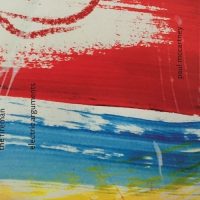After the commercial and critical success of Tug of War, Paul McCartney dove headfirst into 1980s pop with his 1983 followup Pipes of Peace.
Largely consisting of outtakes from the Tug of War sessions, the album features not only his reunion with Michael Jackson but the presence of more synthesizers and dance elements than on previous efforts. Pipes of Peace received a lukewarm response from critics, although the lead single “Say Say Say” proved to be a smash hit. The Paul McCartney Archive Collection version invites listeners to reassess the album and decide for themselves.
Did Pipes of Peace deserve reviews such as NME’s harsh judgement: “A dull, tired and empty collection of quasi-funk and gooey rock arrangements featuring the likes of Stanley Clarke, Michael Jackson, Andy MacKay and Ringo Starr, with McCartney cooing platitudinous sentiments on a set of lyrics seemingly made up on the spur of the moment.”
Pipes of Peace is definitely not Paul McCartney’s strongest effort, but not without some hidden gems. “So Bad” is a lush tribute to R&B, with McCartney harmonizing with wife Linda and other bandmates. Singing in his upper range, his plaintive voice utters lines such as “There was a pain, but now you’re here / And I don’t fear a thing.” Reflecting on the agony and ecstasy of love, his voice glides over a memorable bass line and layered keyboards.
The title track is another strong song, a Beatlesque response to the previous album’s “Tug of War.” As the beat marches over a classical-influenced arrangement, Paul McCartney acknowledges that while hard work is required “until the war is won,” he expresses optimism that future generations hold the key to playing the pipes of peace. “In love our problems disappear,” he avows, echoing the Beatles’ words on their anthem “All You Need Is Love.” In contrast to this somber tone, the funky instrumental “Hey Hey” showcases McCartney’s ongoing love of soul mixed with funk and rock.
Another under-appreciated track, “Keep Under Cover” sounds like a Wings outtake with its two separate sections and full-on rock sound at the end. Starting with soft piano, McCartney croons to his lover: “I’m going to pick you up in the morning,” he sings. “I don’t know where I’m going to, but I know what I’ve been going through – without you by my side.” From this melancholy sound comes tension-filled strings, the tempo accelerating and electric guitars entering the mix. While some of the lyrics are cringeworthy (“What good is butter if you haven’t got bread; what good is art when it hurts your head” are classic examples), hearing McCartney virtually howl the title phrase at the end over blaring guitars shows that despite the album’s pop sheen, he hadn’t lost his love of straightforward rock.
“Say Say Say,” this album’s centerpiece, reteams Paul McCartney with Michael Jackson, with much more satisfying results than the saccharine “The Girl Is Mine.” Both artists encourage one another to stretch their range; at times it is difficult to tell the two apart vocally. While Jackson once again proves he was the king of rhythmic singing, ad-libbing “yeahs” and other sounds to accent the beat, McCartney shows a surprisingly funky side to his singing, a facet he too rarely reveals.
Unfortunately, Pipes of Peace is also filled with weaker tracks like “Average Person,” the odd dance reimagining of “Tug of War,” and his other duet with Jackson, “The Man.” However, the remastered album clarifies the sound, allowing the listener to hear subtleties in the album’s title track and crisper percussion in the ending ballad “Through Our Love.”
It is interesting to view the album in terms of the 1980s pop landscape. Clearly, Paul McCartney struggled to place himself in current trends, adopting dance sounds and collaborating with Jackson. He would continue this journey through singles such as “No More Lonely Nights” and “Spies Like Us,” culminating in one of his most controversial albums, Press to Play. Whether he succeeded or not, McCartney’s 1983 LP captures another phase of his artistic development: his ongoing struggle to reconcile his classic sound with current trends.
The Deluxe Edition of Pipes of Peace comes packed with extras, including a disc of demos, the B-side of the “Say Say Say” single (“Ode to a Koala Bear”), and “Twice in a Lifetime,” previously available only on the 1993 Pipes of Peace reissue.
Heavily promoted on social media, the remixed version of “Say Say Say” features alternate McCartney and Jackson vocals over DJ Jelly Benitez’s original 12-inch remix of the track. The third disc includes the original videos to “Say Say Say,” “So Bad” and, most importantly, the woefully rare “Pipes of Peace” clip. Recreating the 1914 ceasefire on a French Battlefield during World War I, the video features McCartney in a dual role as soldiers from opposing sides. The storyline ends on a touching, hopeful note despite explosions bringing the brief celebration to a halt.
In addition, home video footage shows Paul McCartney at work at George Martin’s AIR Studios in Monserrat, and Jackson visiting the McCartneys at their Sussex farm. Watching Jackson riding horses with the family (interestingly, he wearing a satin jacket from Paul McCartney’s aborted 1980 Japan tour) showcases rare unguarded moments with two superstars. Disappointingly, the new video for “Say Say Say” is not present.
Issuing the McCartney Archive editions of Tug of War and Pipes of Peace simultaneously poses intriguing questions: Does McCartney view these albums as bookends, or a two-part story? Is he inviting the listener to compare and contrast? Or is he demonstrating his progression through the 1980s sound, finally mastering it on 1989’s Flowers in the Dirt?
Revisiting Pipes of Peace certainly raises these issues, no matter how the album ultimately stacks up against its predecessor or future efforts.
- How John Lennon Came Roaring Back on the Beatles’ White Album - November 22, 2023
- Five ‘With the Beatles’ Deep Cuts That Illustrate Their Lasting Debt to R&B - November 20, 2023
- Five Must-Hear Deep Cuts from the Beatles’ ‘Past Masters’ - March 7, 2023




